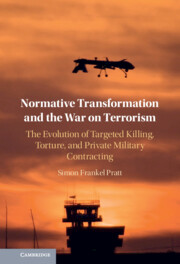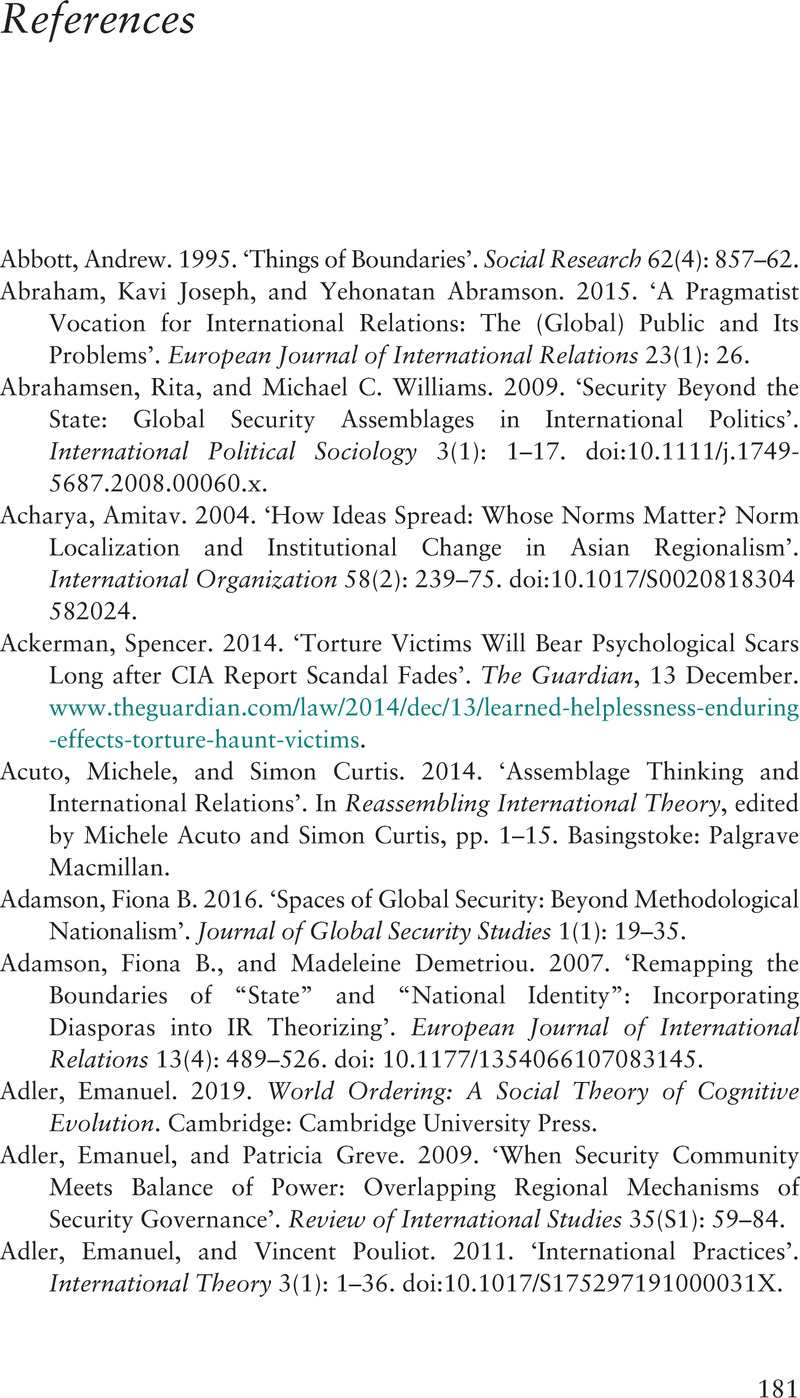 Normative Transformation and the War on Terrorism
Normative Transformation and the War on Terrorism Book contents
References
Published online by Cambridge University Press: 06 January 2022
Summary

- Type
- Chapter
- Information
- Normative Transformation and the War on TerrorismThe Evolution of Targeted Killing, Torture, and Private Military Contracting, pp. 181 - 206Publisher: Cambridge University PressPrint publication year: 2022


